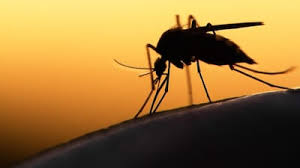ICMR invites partners to launch and sell its new malaria vaccine

The Indian Council of Medical Research (ICMR) has invited healthcare firms and biotech companies to help launch and sell its new malaria vaccine, AdFalciVax. Developed by ICMR’s Regional Medical Research Centre (RMRC) in Bhubaneswar, the vaccine is India’s first homegrown product targeting two stages of the Plasmodium falciparum parasite.
ICMR is looking for industry partners to carry the vaccine forward. These partners will take up the work of trials, production, approval, and sales.
What Makes AdFalciVax Stand Out?
Current vaccines like RTS,S (Mosquirix) and R21/Matrix-M focus on just one stage of the malaria parasite. In contrast, AdFalciVax works at two critical points:
- The stage when the parasite enters the human liver.
- The stage when mosquitoes carry the infection to new hosts.
This two-stage protection gives AdFalciVax a strong edge. It blocks the parasite at both the human and mosquito levels, reducing spread and improving immunity. Another advantage is its thermal stability. The vaccine remains effective for over nine months at room temperature, which is ideal for areas lacking cold storage.
ICMR Opens Technology Licensing
ICMR has released an Expression of Interest (EoI), inviting eligible firms to take up the non-exclusive technology license for AdFalciVax. Under this, multiple companies can access the technology and take the vaccine to market.
Licensing offers the following benefits:
- Full access to AdFalciVax’s scientific data and protocols.
- Technical support from ICMR in designing trials and analyzing data.
- Rights to produce, market, and distribute the vaccine.
- A small royalty fee of 2% of net sales, based on ICMR rules.
Importantly, ICMR will retain ownership of the intellectual property to ensure oversight and public welfare.
Development in Four Phases
The vaccine will go through four planned stages:
- Lab and process review – Make the production process ready for mass manufacturing.
- Initial human trials (Phase I/II) – Test safety and immune response in volunteers.
- Large-scale trials (Phase III) – Confirm results in multiple malaria-prone areas.
- Approval and launch – Secure clearances and start public rollout.
Each stage allows for some delays, and the full process is expected to take about seven years.
Why This Vaccine Matters
Malaria remains a major health issue in India. The World Malaria Report 2023 notes that India accounts for 66% of malaria cases in the South-East Asia Region. Despite good progress, issues like drug resistance, climate change, and urbanization still fuel the disease.
An affordable and effective malaria vaccine is critical. It can protect vulnerable groups such as children and pregnant women and support the national goal of malaria elimination by 2030.
Comparing India’s Vaccine with Others
| Vaccine | Target Stage | Developer | Available in India | Unique Feature |
|---|---|---|---|---|
| Mosquirix | Liver stage | GSK, PATH, WHO | Yes | First WHO-approved malaria vaccine |
| R21/Matrix-M | Liver stage | Serum Institute of India | Yes | Higher early efficacy |
| AdFalciVax | Liver + mosquito stage | ICMR-RMRC & NIMR | Not yet | Dual-stage and heat stable |
AdFalciVax blocks both infection and transmission. This may offer better protection for entire communities compared to existing options.
A Call to Collaborate
ICMR is not just offering a product; it is asking India’s health industry to partner in a national mission. The council wants to fast-track innovation, build local vaccine capacity, and make India a global leader in disease prevention.
This opportunity is also strategic. Reducing dependence on imports and building a local pipeline strengthens India’s health sovereignty.
Final Thoughts
AdFalciVax is more than a vaccine—it represents India’s growing scientific power and commitment to public health. With the right partners, this project could change how the country and the world fight malaria.
ICMR’s open call invites companies to step forward and make history. Success here could lead to thousands of saved lives, improved disease control, and a proud new chapter in India’s public health journey.






